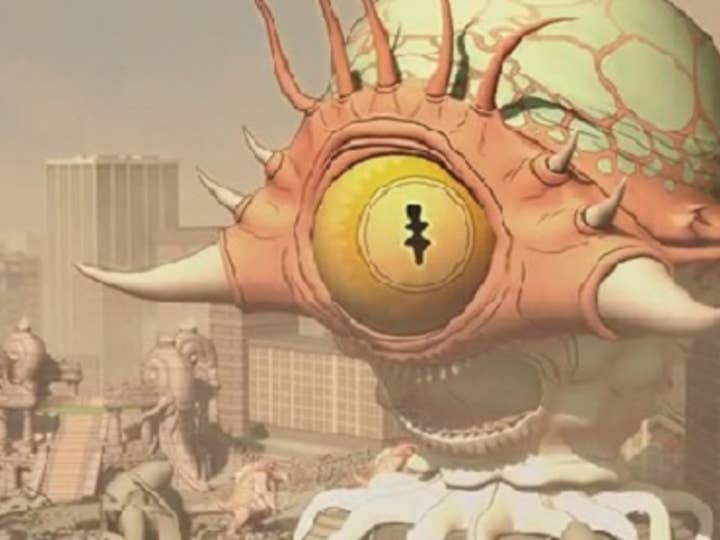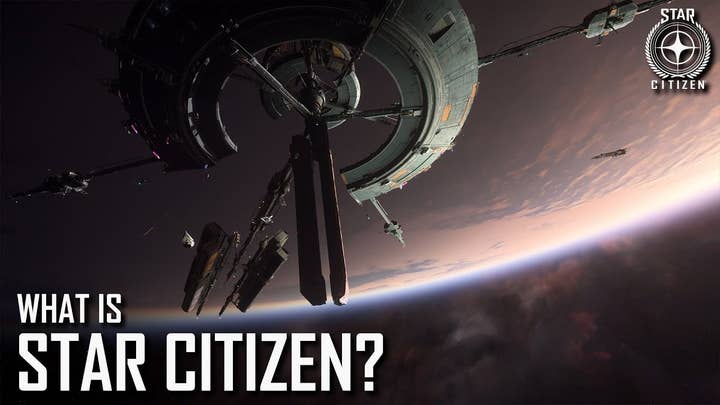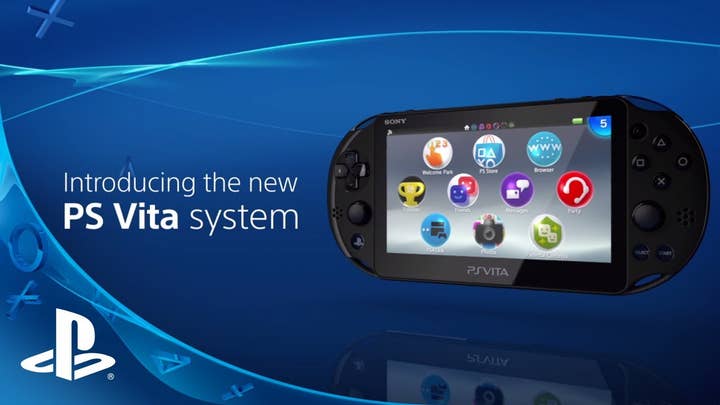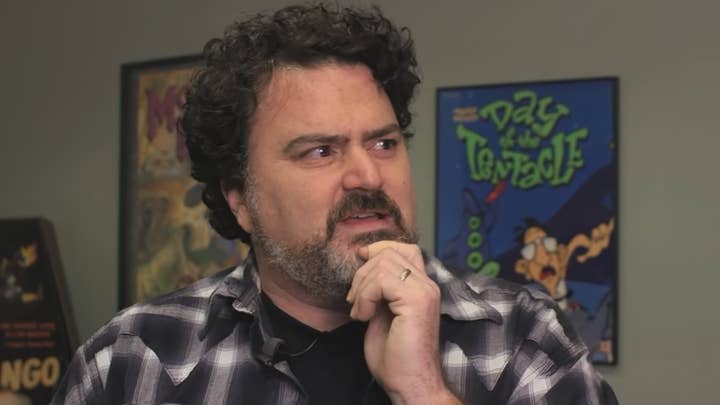Crowdfunding becomes the gold rush du jour | 10 Years Ago This Month
Double Fine kicks off a revolution, PlayStation Vita hits shelves, and we discover the Crystal Ball Society
The games industry moves pretty fast, and there's a tendency for all involved to look constantly to what's next without so much worrying about what came before. That said, even an industry so entrenched in the now can learn from its past.
So to refresh our collective memory and perhaps offer some perspective on our field's history, GamesIndustry.biz runs this monthly feature highlighting happenings in gaming from exactly a decade ago.
Making and selling games is hard. But every now and then a shortcut appears that promises to change a key part of that and make the whole business of game development a little bit easier.
After the Xbox 360 launched in 2005, you were golden if you could just get your game on Xbox Live Arcade. A few years later, it was all about getting your game on Steam, or signing a deal with Sony during its indie-friendly Pub Fund phase. And after the Wii U flamed out, indie developers still willing to give Nintendo the time of day found a boost by being an early entrant on the Switch eShop. Social and mobile likewise beckoned developers with promises of untold riches and success stories of early movers.
By the time a "shortcut" with any actual effectiveness becomes conventional wisdom, it has been so widely embraced that whatever advantage it once conferred is gone
These days it might be about getting a game on Game Pass to guarantee a minimum level of success up front, or invoking the magic mix of metaverse and web 3.0 jargon to summon VCs with unconscionable amounts of money to burn.
Some of those promises are false from the outset and never change a thing. Others turn out to have a grain of truth to them, but only for a select group of people, or only for a very limited time. By the time a "shortcut" with any actual effectiveness becomes conventional wisdom, it has been so widely embraced that whatever advantage it once conferred is gone.
Still other promises do lead to lasting change, even if it's not quite the way people had expected.
In hindsight, that's where I'd put the crowdfunding revolution, which kicked off in earnest 10 years ago this month with the launch of the Double Fine Adventure Kickstarter.
At the time, Double Fine Productions was a well-regarded indie studio with a couple of well-regarded but commercially underperforming AAA games under its belt: Psychonauts and Brutal Legend. It had more recently pivoted away from the AAA space to release downloadable games with a smaller scope, with such offerings as Costume Quest, Stacking, and Trenched (later renamed Iron Brigade) receiving warm receptions.
But much of Double Fine's reputation was still rooted in its founder Tim Schafer, and his prior work on seminal LucasArts point-and-click adventure games like The Secret of Monkey Island franchise and Day of the Tentacle. The problem was that as much as an audience of players still wanted games like that, it wasn't a large enough audience to justify making them in the industry ecosystem of the time.
"If I were to go to a publisher right now and pitch an adventure game, they would laugh at my face," Schafer explained in the Kickstarter pitch video for Double Fine Adventure.
Individual gamers, however -- the ones who often asked Schafer when he would make another old-school adventure game -- were far more willing to throw money behind the idea. Double Fine put a $400,000 goal on its campaign drive; it had drawn $1.2 million in backing almost overnight, en route to a $3.3 million total.
Double Fine was not the first major studio to go the crowdfunding route. In 2011, Robomodo -- the developer behind the ill-fated Tony Hawk Ride and Shred games with the motion-sensing skateboard peripheral -- attempted to raise a modest $35,000 for a Kinect game called Bodoink, but fell so far short of the goal I actually feel a little bad bringing it up. I actually wouldn't bring it up at all if it weren't such a clear example of how limited the crowdfunding success stories were at first.
In the days after Double Fine hit it big, the idea of crowdfunding and Kickstarter very quickly became intertwined with well-regarded developers taking a victory lap around their fondly remembered hits.
Within days of Double Fine launching its campaign, Brian Fargo was doing press rounds to drum up interest in an inXile crowdfunding campaign for a new Wasteland.

The high-profile crowdfunding success stories followed. Obsidian Entertainment funded Project Eternity, an RPG along the lines of Baldur's Gate and Planescape: Torment. And in case that didn't scratch the itch for fans of that latter project, inXile launched its second campaign for Torment: Tides of Numenura. Harebrained Schemes promised a return to the RPG side of the Shadowrun universe.
David Braben and Frontier got a new entry in the Elite series off the ground with the campaign for Elite: Dangerous. Ex-Capcom dev Keiji Inafune capitalized on his former employer's seeming disinterest in its Mega Man franchise to make the Mighty No. 9 Kickstarter a hit. Peter Molyneux's crowdfunded spiritual successor to Populous was supposed to be a trip down memory lane for Molyneux fans, and in at least one sense, it absolutely was.
As much as well-known developers could be empowered to make sequels and spiritual successors, the audience appetite for novelty was as fickle as ever
As Konami let its classic console franchises languish, Koji Igarashi crowdfunded Bloodstained, a gothic action game very much in line with his classic Castlevania: Symphony of the Night. A bunch of former Rare developers mined the (surprisingly rich) vein of Banjo-Kazooie nostalgia for Yooka-Laylee. Yu Suzuki crowdfunded the long-awaited third entry in the Shenmue franchise.
Clearly, there was a specific type of developer for whom crowdfunding was an effective avenue to funding games they would like to make. But it's difficult to call it a shortcut given how demanding the best practices and community manager are for running a successful Kickstarter campaign. And as much as well-known developers could be empowered to make sequels and spiritual successors, the audience appetite for novelty was as fickle as ever.
XCOM designer Julian Gollop crowdfunded a spiritual successor to his signature hit with Phoenix Point, but Gollop's fantasy tactics RPG Chaos Reborn didn't look enough like XCOM and barely made it over its relatively modest $180,000 funding target.
Uber Entertainment cruised to $2.2 million to follow-up the old RTS classic Total Annihilation with Planetary Annihilation, but it pulled the plug on its follow-up campaign for the post-apocalyptic kaiju RTS Human Resources when it became clear it would fall "woefully short" of its $1.4 million funding target.

So yes, the thing that most clearly changed with crowdfunding was that old developers got a better chance to revisit their glory days. Most of these campaigns weren't going to completely cover the costs of development, but they were in most cases proof enough that an audience existed for the project that publishers and additional funding could be secured.
Interestingly, we don't see nearly as many well-known veteran developers passing the hat on Kickstarter these days. The days when a studio trying crowdfunding was newsworthy in and of itself are long since passed. Steam launched Early Access in 2013 and that seems to have provided many studios with the early income, evidence of consumer interest, and community-building functions for which crowdfunding was most useful. It's also likely less difficult to convince publishers of the value in nostalgic gaming given the success many of the above projects enjoyed.
Kickstarter's biggest impact has been from the projects that don't fit the Double Fine mold
But let's talk about the outliers, the projects that followed on from the Double Fine breakthrough but don't fit that mold. Because honestly, I think that's where I see the bigger impact.
Let's start with the Oculus Rift, the Kickstarted headset that kickstarted a new wave of VR interest, sold to Facebook for $2 billion, and with that company's push for the metaverse now threatens to make the idea of work meetings somehow even worse.
Or Ouya, the hacker-friendly microconsole that was built on the Android smartphone OS to ensure a wide variety of games and developer support, ignoring that a console with a traditional controller hooked up to a TV matched neither the input device nor the use case that successful Android games had adopted. Reviews weren't kind, but this thing launching in any state was a success and absolutely recalibrated my understanding of how niche viable gaming hardware can be.
As Chris Roberts' spiritual successor to Wing Commander, Star Citizen seems like it would belong in the above section. But with almost $440 million in funding since the original Kickstarter campaign went live in December of 2012, developer Cloud Imperium Games has not only proven the power of artificial scarcity of digital items, speculative hoarding, fear of missing out, and a powerful sense from outside observers that something untoward is going on, it has done all of that without needing the blockchain in any form!

And what about Tropes vs. Women in Video Games? Feminist Frequency raised almost $159,000 to produce a YouTube video series detailing the numerous shabby ways women are portrayed in video games. The ensuing feces-slinging tantrum of antisocial behavior also helped demonstrate exactly how an industry that constantly reinforces women as subordinate afterthoughts can not only predispose some of its audience to believe that's the proper order of things, but it can communicate to misogynists that not only are they welcome here, their views are actually considered paramount.
The weird, unusual, niche offerings given a chance to find their audience are the best things to come out of the crowdfunding revolution
And then there are the rest of the crowdfunding successes that never gained wide acclaim. The weird, unusual, niche offerings in games that were given a chance to live and find their audience in a way they never would have previously. These are the best things to come out of the crowdfunding revolution. Even when the projects never actually came to fruition, I'm overjoyed these things existed.
Whether it was the stickers to make your Switch controller look like a derpy puppy dog, a game about a favorite local park, or a pledge drive to pay for Raul Julia and Anjelica Huston's likeness rights, this is the part of crowdfunding that has thrived and continues to thrive long after all the celebrated developers of yesteryear have moved on.
Ico Partners has been following Kickstarter for years, and it has determined that last year saw more video game projects funded on the platform than ever before, with 441 campaigns raising a total of $24 million.
The platform has seen more lucrative years, to be sure. 2013 was its all-time high, where a little under 400 video game projects combined to raise $56 million. But with the higher-profile projects gone from the site, what remains is a lot more of that last category of projects, the sort of titles I'm going to root for the hardest, and the ones that now have a chance to exist.
Crowdfunding isn't a shortcut to completion for them by any means, but it gives these creators slightly better odds to realize their goals, and that's a revolution worth celebrating.
Vita gets busy living, gets busy dying
Sony's little handheld that couldn't debuted in the UK and US 10 years ago this month, amid foreboding signs and ill portents a-plenty.
Sony Computer Entertainment America was proudly touting the $50 million launch marketing campaign as the largest ever for a Sony gaming platform, but the buzz around the system was oddly muted.

The big game of launch was Uncharted: Golden Abyss, a showpiece intended to show that uncompromised AAA game experiences were now possible on the go, but the reviews for the game were mixed at best, with some near-perfect scores offset by Edge Magazine's assertion that it was all "a bit straight-to-DVD" while Giant Bomb's Jeff Gerstmann pointed out that the game lacks the highly scripted setpieces that had been the calling card for the console Uncharted titles, undercutting the system's key selling point in the process.
Add to that news that major Australian retailers had decided not to stock the system, and Vita hardware sales were trailing the PSP in Japan.
It's never a good sign when your executives' launch day interviews involve denying reports of a developer exodus from the platform
Finally, it's never a good sign when your executives' launch day interviews involve denying reports of a developer exodus from the platform.
(That North American launch day referred to was February 15, when a pricier First Edition bundle of the Vita launched with a copy of Little Deviants, a memory card, and a limited edition case. The official release for the non-bundled hardware followed on February 22, an interesting approach to a hardware launch I haven't seen before or since.)
Vita finished the month with a global installed base of 1.2 million, roughly half of which were sold in Japan, where the system launched the previous December. It's a bit of apples and oranges, but the previous year, the 3DS had sold three times as much in its first two months, and that was a dire enough result that Nintendo admitted the disappointing sales and soon after drastically cut the price of the hardware.
From a certain perspective, the Vita was arguably the second most successful hardware launch of the month behind the £22 Raspberry Pi. While Vita easily sold more units and brought in more revenue, the Pi was the system that sold out in a matter of hours amid website-crashing demand.
Predicting just for the Schell of it
This interview with Schell Games CEO and founder Jesse Schell was originally going to be part of the Good Call, Bad Call section because he was asked what he'll be doing in ten years, and it seems like this column is ideally situated to evaluate his answer. (He said "making games," so that one checks out as a Good Call. Way to go, Jesse.)
But then I saw this quote.
"I have a website called the Crystal Ball Society, which is all about making concrete predictions about the future," Schell said, offering a siren song this columnist is powerless to resist.
It turns out the Crystal Ball Society website forwards people to a YouTube channel full of Schell and others making exactly the kind of predictions we love to revisit for 10 Years Ago This Month, and there are some doozies here:
PS Vita will be the fastest-selling handheld game system of all time.
The mouse will no longer be the primary input device for desktop computing by 2015.
Everyone will wear AR glasses by 2021.
MMOs will pass the Turing Test by 2020.
And of course, the prerequisite: Mobile phones will replace game consoles by 2021.
That's not to say it's all big swings and big misses. For example, Schell was accurate in predicting that Harry Potter: Wizards Unite would have one-quarter the players of Pokémon Go, or less. (It had a lot less.)
But perhaps the most prescient prediction on the page belongs to Schell Games narrative designer Jared Mason, who in the summer of 2011 predicted that the oft-woeful Detroit Lions would make the NFL playoffs within three years.
They made the playoffs the next season.
Good Call, Bad Call
GOOD CALL: The NPD Group finally gets Walmart to provide it with sales figures, filling in the last big gap in its understanding of physical US game sales just in time for people to stop treating physical game sales as the whole story because everything's going digital.
GOOD CALL: In a startling DICE Summit presentation, Tomonobu Itagaki candidly and without shame shared the story of how Tecmo's surprise release of the unfinished Dead or Alive 2 on the PlayStation 2 sent him into a months-long alcoholic spiral and how he hit rock bottom watching Michael Bay's Armageddon on a loop with his infant daughter on his lap while he cried over the Aerosmith song on the soundtrack.
UNRELATED BAD CALL: THQ, for giving Itagaki a budget nearly equal to every game from his entire career to that point put together so that he could make Devil's Third. (After THQ's demise, Devil's Third was inexplicably picked up by Nintendo and published as a Wii U exclusive in December of 2015, where it received impressively negative reviews and shipped in such low numbers that copies were selling for hundreds of dollars the same week it launched.)
BAD CALL: Gaikai co-founder David Perry predicted Microsoft would get into the business of making TV sets, saying, "My prediction is that Microsoft will have to make a TV. What choice do they have? There have been lots of reports that Apple has bought out a large LCD panel-making company. It's pretty obvious that they're on the trail too."
Apple reportedly spent a decade putting together plans to enter the TV market, but shelved them in early 2014. As for Microsoft, its current strategy is more about making its software services available through as many platforms as possible than in making new platforms to own the experience from beginning to end.
BAD CALL: Peter Moore said EA's Origin service would need two years to fulfill its potential. Given the company believed the service's potential was to provide viable competition to Steam, I think it's fair to say it needed a lot more than that. Origin still exists, but it's not exactly front-of-mind for any developer, and EA putting its new games back on Steam in 2019 is as close to an admission of defeat as we're going to get.
BAD CALL: Google+ engineering director David Glazer said the search giant's would-be Facebook competitor would not be repeating its rival's mistakes, saying, "We've seen communities ruined by games. How do we find that balance between people who are interested in games... without having the problem of more spam?"
Like many of us, Glazer was looking at the problem through the hopelessly naïve eyes of a sweet summer child who believed the key to a social network's success was happy and well-served users rather than ruthlessly driving engagement through a constant barrage of anger-stoking misinformation and fun house mirrors of success that erode self-esteem positioned right next to advertising that promises to fill that nagging void in your soul if you'll just buy yourself a little something.
We now know which approach worked better.
GOOD, BUT SHAMELESS CALL: In the midst of another in the industry's lengthy history of discourse about copycat games, Zynga's Mark Pincus addressed accusations of wholesale design theft, saying, "I think people in the industry are defining innovation different from the way we are."
He was right, too. Just as Facebook recognized the difference between a successful social network and a failed one was not how well it served customers but how well it hooked them, Pincus understood that the difference between the winners and losers in social gaming was less about the quality of the gameplay and more about the quality of the monetization, analytics, user acquisition, and optimization strategies behind it.
BAD CALL: In talking about the prior November's difficult launch of the Call of Duty Elite subscription service, Activision CEO Eric Hirshberg stressed the publisher's commitment to the project, saying, "We're a long way from doing victory laps but we're in it for the long haul."
For the record, "the long haul" wasn't that long. Activision made the subscription a free service later in 2012, and shut it down entirely in early 2014.


